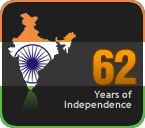The Man who will not bribe By Veeresh Malik
A true account of the travails of an upright founder of an educational institute of global standards built on strong foundations of ethics
Reviewed by Gopinath Mavinkurve
What happens when a bright
IIT-Delhi (1981) and IIM-Ahm (1983) executive chucks his plush job with an MNC
to pursue his dream of setting up an educational institute offering global
standards and built on the principles of ethics? Lots could have happened, but when it is Dr. Varun
Arya, the Director of Aravali Institute of Management (AIM), who takes on the
challenges thrown at him with the undaunted determination, the answer is just
this: Success at a steep cost!
Principles of ethics, dear
readers, for Varun Arya means no bribes will be paid whatsoever - and no
unethical practices to be adopted in his institute while seeking to excel in
the field of providing higher education conforming to global standards! So you
think that wouldn’t take his dreams anywhere, right? Wrong!
Although the challenges thrown meant being falsely framed charges,
turning down approval requests, refusing land use changes, applying unfair
stipulations over competitors and what-have-you, the dogged pursuit of the
applicant institute to get the approvals without paying a single rupee bribe is
something one has got to read- unbelievable as it may seem!
One is much too familiar with the
bureaucratic red-tape all designed to trap bribe-payers into loosening the
purse-strings to get their much-needed
approvals despite not being compliant with the regulatory conditions - or only just
to speed up the process. It happens
everywhere, you may say. One just gets around
these hurdles and gets going, one may believe – but for Varun it was not “his
way” of going about setting up an institute of learning! His principles were far too important to him –
and what’s more, the entire teaching faculty and his entire team backed him to
the hilt! Naturally, the hurdle race got
tough – but certainly not un-surmountable.
One tool that he used to fight
the menace of ‘demanding’ government officials was the Right to Information Act
(RTI). Several RTI applications were
filed time and again to expose the atrocities of the bureaucracy and the victimization
of the institute vis-à-vis the other institutes. However, inspite of all these efforts, it is
disheartening to note how the entire staff of the institute had to resort to a
fast-unto-death to get their rightful approvals!
Do read the sordid saga of the
struggles that the institute's founder had to go through and the wonders that they
produced despite all the odds faced by them in this ebook available on AmazonKindle in this link here.
Veeresh Malik, a journalist and
activist, who had earlier lent support to the institute in respect of the filing of RTI
applications “assembles the book”(in his own words). A curator of the book, would perhaps be a
better word for his role, as he weaves together several emails, letters,
speeches and the memories of the events that occur in the life of the protagonist, the real life hero, Dr.
Varun Arya - The Man Who Will Not Bribe.
May a thousand Varun Aryas bloom!
May a thousand Varun Aryas bloom!


















